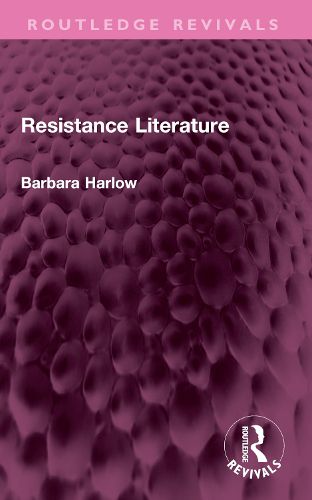Readings Newsletter
Become a Readings Member to make your shopping experience even easier.
Sign in or sign up for free!
You’re not far away from qualifying for FREE standard shipping within Australia
You’ve qualified for FREE standard shipping within Australia
The cart is loading…






As one of the foundational texts in the field of postcolonial writing, Barbara Harlow's Resistance Literature introduced new ground in Western literary studies. Originally published in 1987 and now reissued with a new Preface by Mia Carter, this powerfully argued and controversial critique develops an approach to literature which is essentially political. Resistance Literature introduces the reader to the role of literature in the liberation movements of the developing world during the 20th Century. It considers a body of writing largely ignored in the west. Although the book is organized according to generic topics - poetry, narrative, prison memoirs - thematic topics, and the specific historical conditions that influence the cultural and political strategies of various resistance struggles, including those of Palestine, Nicaragua and South Africa, are brought to the fore. Among the questions raised are the role of women in the developing world; communication in circumstances of extreme atomization; literature versus propaganda; censorship; and the problem of adopting literary forms identified with the oppressor culture.
$9.00 standard shipping within Australia
FREE standard shipping within Australia for orders over $100.00
Express & International shipping calculated at checkout
As one of the foundational texts in the field of postcolonial writing, Barbara Harlow's Resistance Literature introduced new ground in Western literary studies. Originally published in 1987 and now reissued with a new Preface by Mia Carter, this powerfully argued and controversial critique develops an approach to literature which is essentially political. Resistance Literature introduces the reader to the role of literature in the liberation movements of the developing world during the 20th Century. It considers a body of writing largely ignored in the west. Although the book is organized according to generic topics - poetry, narrative, prison memoirs - thematic topics, and the specific historical conditions that influence the cultural and political strategies of various resistance struggles, including those of Palestine, Nicaragua and South Africa, are brought to the fore. Among the questions raised are the role of women in the developing world; communication in circumstances of extreme atomization; literature versus propaganda; censorship; and the problem of adopting literary forms identified with the oppressor culture.